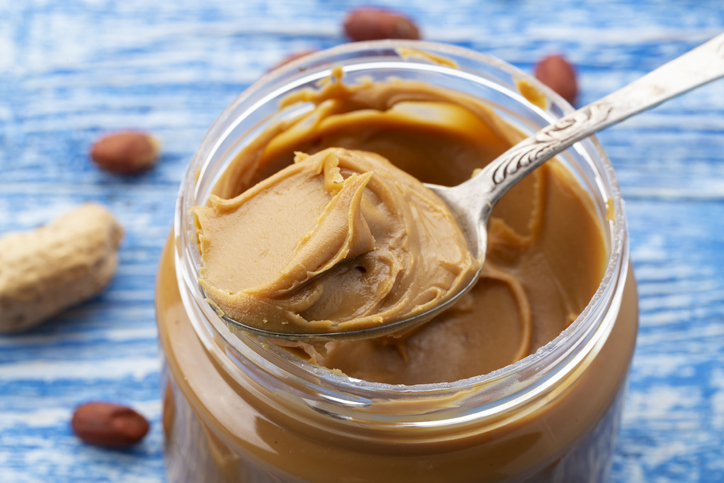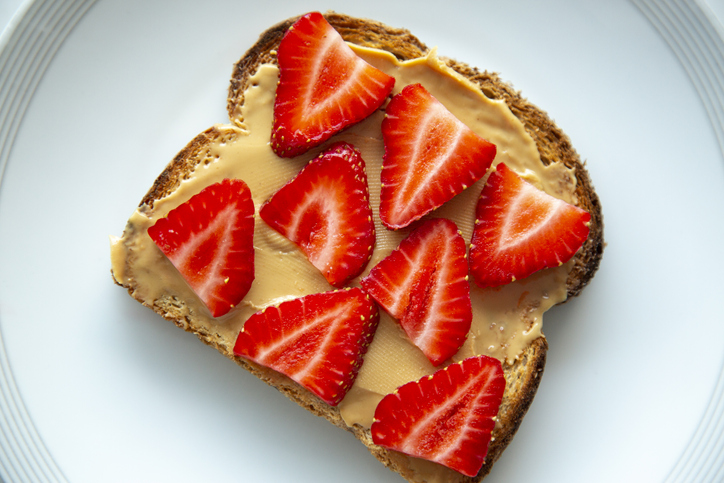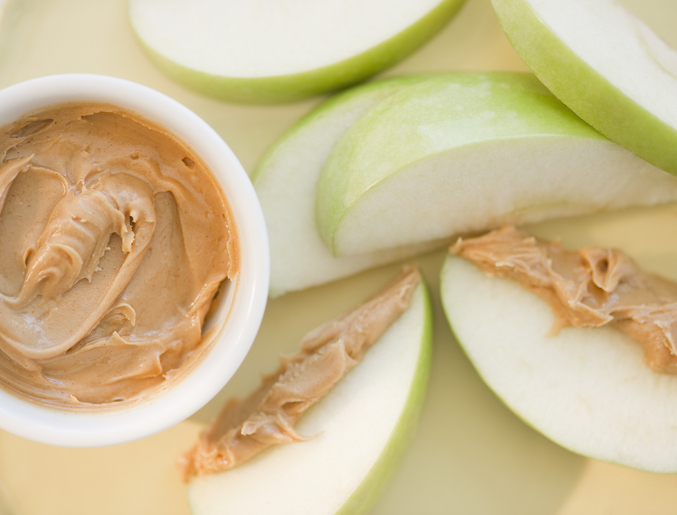Calling All Peanut Butter Lovers!

By Joy Stephenson-Laws, JD, Founder
Today is National Peanut Butter Lover's Day!
I love peanut butter. At least once each week, I make a smoothie with peanut butter, honey, bannana, yogurt and almond milk. It feels like dessert, but it's very healthy and nutrient-dense.
Peanut butter, however, is one of those foods that has gotten a bad rap. Obviously, people with peanut allergies need to stay away from this sticky goodness. But in addition to this, many people are concerned that peanut butter is too fattening. So, let's first clear up some of the myths about peanut butter.
Yes, peanut butter is fattening. It is also a good source of healthy fats called monounsaturated and polyunsaturated fats. (These types of fats are also found in avocados and olive oil). There are many studies which suggest that populations that consume high amounts of monounsaturated fats from extra virgin olive oil and nuts may be better protected against heart disease and metabolic syndrome.
"Over the years, numerous studies have shown that people who regularly include nuts or peanut butter in their diets are less likely to develop heart disease or type 2 diabetes than those who rarely eat nuts. Although it is possible that nut eaters are somehow different from, and healthier than, non-nutters, it is more likely that nuts themselves have a lot to do with these benefits," according to a professor of nutrition with Harvard.
(Heart disease is the leading cause of death among both American men and women).

I could honestly eat spoonfuls of peanut butter throughout the day, but this would lead to weight gain. Moderation is always necessary (even with healthy foods). People tend to not measure the amount of peanut butter they are using when making a sandwich or adding it to a smoothie. My tip would be to always measure. A little also goes a long way.
Peanut butter is also a great source of plant-based protein. Protein is a key nutrient we all need. You may already know that protein is a nutrient key in muscle building and repair, but you may not know that protein may also be key in protecting against fatty liver.
Additional nutrients in peanut butter:- Folate: Folate (also known as vitamin B9) is one of the eight B vitamins. B vitamins help our bodies properly use the food we eat as fuel. They are involved in building DNA that the body uses for cell growth.
- Vitamin E: Is known to help with skin health, vision, reproduction and the health of your blood and brain.
- Vitamin B3 (niacin): B3 is important for our digestive system, skin and nervous system. It helps make sex hormones and stress-related hormones. It also helps improve circulation and suppress inflammation. Niacin is used to treat high cholesterol and is also used alongside other treatments for circulation issues, migraines, dizziness as well as reducing diarrhea associated with cholera.
- Vitamin B6: This vitamin is involved in more than 100 enzyme reactions in the body which are mostly concerned with protein metabolism, according to the NIH. “Vitamin B6 also plays a role in cognitive development through the biosynthesis of neurotransmitters and in maintaining normal levels of homocysteine, an amino acid in the blood. Vitamin B6 is involved in gluconeogenesis and glycogenolysis, immune function (for example, it promotes lymphocyte and interleukin-2 production), and hemoglobin formation.”
- Magnesium: Studies with rats have shown a low level of the mineral magnesium can slow down growth of lean body mass (muscle and bone building) and promote an increase in body fat. This may be due to the body’s need for magnesium in so many different functions, more than 300 according to the National Institutes of Health.
- Copper: This mineral is essential for human life and is found in virtually every one of your body’s tissues. It is an antioxidant that may help with immune system function.
- Manganese: Manganese is an essential trace mineral that aids in bone formation and bone health in general. Women with osteoporosis have been found to have low serum levels of manganese.

Know the right kind of peanut butter to buy.
This part is so critical. The peanut butter you buy (or you can make your own) should not have any added salt or sugar. So many store-bought peanut butters contain added salt and sugars. Simply check the ingredient labels. The only ingredient should be peanuts! You may also want to splurge on organic. I purchase an all-natural, more liquidy peanut butter that goes nicely in my smoothies. If you are allergic to peanuts or have a nut allergy in general, you can try sunflower butter (which also has many of the same benefits as peanut butter).
As always, speak to your doctor about introducing new foods into your diet. This is especially critical for those that are breastfeeding, pregnant or have any existing health issues.
Enjoy your healthy life!
Disclaimer: This article is not intended to provide medical advice. Please consult with your doctor or another competent healthcare practitioner to get specific medical advice for your situation.
The pH professional health care team includes recognized experts from a variety of health care and related disciplines, including physicians, attorneys, nutritionists, nurses, and certified fitness instructors. This team also includes the members of the pH Medical Advisory Board, which constantly monitors all pH programs, products, and services. To learn more about the pH Medical Advisory Board, click here.







